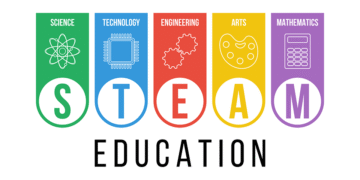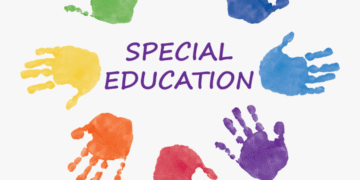Understanding Core Values: The Bedrock of Character
Character development centers on cultivating essential values that shape individuals and communities. Exploring these fundamental principles is crucial for understanding how educational institutions contribute to holistic growth and positive societal impact.
Identifying and Integrating Foundational Values
At the heart of character development lies the identification and promotion of fundamental values. These values serve as guiding principles for behavior and decision-making. Institutions often emphasize traits like responsibility, respect, and resilience to build a strong moral compass in students. These values aren’t just abstract concepts; they’re integrated into actionable programs that encourage practical application and community engagement, fostering a supportive environment where students can internalize and practice these principles.
For example, peer mentorship initiatives and social-emotional learning (SEL) training are common methods used to instill values. Successful character development is often recognized through specific practices. One school’s initiatives have been acknowledged for emphasizing values like resilience, observance, accountability, and respect. Such recognition highlights effective strategies in value cultivation.
Character development thrives on structured, community-driven programs. These programs prioritize creating safe environments and offer early intervention and support. The goal is to foster integrity and social responsibility, preparing students for a flourishing future. The integration of core values into school programs is exemplified by initiatives that promote resilience, observance, accountability, and respect.
These values are often linked to specific actions, such as peer mentoring and SEL training, reinforcing their importance. In 2023, Dover Middle School’s “School of Character” initiatives, including Character Counts and Tiered Support.
| Core Value | Description |
|---|---|
| Resilient | Emphasizing perseverance and adaptability |
| Observant | Fostering attentiveness to self and others |
| Accountable | Promoting responsibility for actions and decisions |
| Respectful | Building mutual respect within the school community |
Data Source: Dover Middle School, “School of Character” (Dover Public Schools, New Jersey) May 10, 2025
Honesty and Ethics: Building a Foundation of Integrity
Exploring the essence of integrity reveals its pivotal role in shaping responsible individuals. As educational landscapes evolve, the commitment to fostering strong moral principles remains constant, ensuring future generations prioritize honesty and ethical behavior.
Upholding Academic Standards in the Age of AI
Educational institutions are increasingly focused on upholding academic integrity, particularly in the face of emerging technologies like AI. The adoption of advanced technological tools has seen considerable growth in recent years. These resources enable educators to more effectively address challenges to integrity. The rising tide of AI detection reflects a proactive stance in maintaining educational standards. As AI-driven plagiarism becomes more prevalent, schools are responding with increased vigilance and the implementation of AI detection tools.
Data indicates a significant increase in the use of AI detection tools by teachers, alongside a corresponding rise in student discipline for AI plagiarism. In the school year 2022–23, 38% of teachers used AI detection tools, resulting in a student discipline rate of 48% for AI plagiarism. By 2024–25, these numbers had risen to 68% and 64%, respectively.
| School Year | % Teachers Using AI Detection Tools | Student Discipline Rate for AI Plagiarism |
|---|---|---|
| 2022–23 | 38% | 48% |
| 2024–25 | 68% | 64% |
Data source: Artsmart Blog, citing K-12 Dive and GovTech (“AI Plagiarism Statistics 2025: Transforming Academic Integrity”) February 23, 2025
This trend underscores the importance of reinforcing core values such as honesty and ethical conduct among students, preparing them for the challenges of an increasingly complex world. By instilling a robust moral compass, educational institutions equip students with the skills to navigate these challenges and contribute positively to society.
Reinforcing Core Values and Preparing for the Future
Emphasis is placed on reinforcing values such as honesty. These efforts are designed to cultivate a deeper understanding of ethical conduct among students. This approach prepares them for future challenges. Instilling a robust moral compass in students is essential for their development. By prioritizing integrity, educational institutions equip students with the skills to navigate an increasingly complex world. This focus ensures they are ready to contribute positively to society.
Fostering Understanding: Empathy and Cultural Awareness
In today’s interconnected world, cultivating empathy and understanding of diverse cultural heritages is more crucial than ever. This approach not only enriches individual lives but also strengthens the fabric of our communities by fostering inclusivity and respect.
Cultivating Empathy and Integrating Cultural Heritage
Character education is placing increasing emphasis on empathy as a core component. Studies suggest that cultivating moral awareness, social responsibility, and core values significantly enhances psychological well-being. By fostering positive emotions and reducing negative ones, these programs contribute to a more balanced and resilient individual. Educators are increasingly recognizing the importance of integrating cultural heritage into educational programs. This involves encouraging students to reflect on their own backgrounds while appreciating different cultural narratives. Such integration promotes understanding and helps bridge divides within diverse communities.
Experiential methods, such as role-playing, have proven effective in helping learners internalize complex historical experiences tied to identity formation. Similarly, interventions incorporating history education or storytelling about various heritages are noted for building mutual respect across communities. These approaches not only support personal growth but also contribute to broader goals such as social inclusion and civic virtue.
Experiential Learning and Social Inclusion
By understanding and appreciating different perspectives, individuals are better equipped to participate in meaningful dialogue and contribute positively to society. Empathy-rich curricula not only support personal growth but also contribute to broader goals such as social inclusion and civic virtue. By understanding and appreciating different perspectives, individuals are better equipped to participate in meaningful dialogue and contribute positively to society.
Building a Better World: Nurturing Social Responsibility
Cultivating social responsibility in students is vital for creating a more ethical and community-minded generation. By integrating key values into the educational environment, we can empower students to become responsible and engaged citizens.
Embedding Values and Promoting Well-being
Character education, with a specific focus on fostering social responsibility, is gaining recognition as a cornerstone of student development. Initiatives are highlighting the significance of embedding values like empathy, responsibility, caring, and integrity throughout the school day. These values help students develop a strong moral compass.
Research indicates that moral education interventions can substantially improve students’ psychological well-being. These interventions enhance moral awareness, sense of social responsibility, and emotional regulation skills, all of which contribute to a more resilient and balanced individual. Integrating character-building lessons into daily routines is crucial. This can be achieved through activities such as community circles, counseling sessions focused on ethical decision-making, and student participation in service-learning or welfare practice programs. These activities provide practical opportunities for students to apply ethical principles.
Effective Integration and Culturally Responsive Programming
Schools designated as “Schools of Character” serve as models for nurturing positive values. These schools demonstrate measurable positive impacts on both academic climate and long-term student development, showing the effectiveness of a comprehensive approach to character education. There is a growing emphasis on ensuring culturally responsive programming that involves families and communities. This collaborative approach aims to co-create standards for responsible behavior that are inclusive for diverse populations, ensuring that all students feel valued and respected.
Shaping Responsible Citizens: Behavioral Norms in Action
Character education is gaining traction as a vital component in cultivating well-rounded individuals. It goes beyond academics, focusing on instilling core values to prepare students for societal contributions and navigate future challenges effectively.
Emphasizing Core Values and Holistic Learning
Character education emphasizes crucial values like integrity, respect, and social responsibility. These values are foundational in developing responsible citizens who contribute positively to their communities. Educators recognize that academic success alone is insufficient. Many regions are incorporating character education into their curricula. Programs such as Character Counts and Be Kind People Project highlight interpersonal, moral, and social–emotional skills, fostering a culture of kindness and consideration among students.
There’s a growing movement toward holistic education, encompassing ethical and civic development. This approach aims to nurture not only intellectual capabilities but also the character traits necessary for ethical decision-making and community engagement. By focusing on character development, educational institutions are preparing students to address future challenges. Instilling values and promoting social responsibility empowers students to become active, engaged, and ethical members of society.
Q&A
Question 1: What is the central focus of the provided text regarding character education?
Answer: The text emphasizes the importance of character education in fostering integrity, social responsibility, and empathy in students. It explores how schools can integrate values like resilience, respect, and accountability into their programs and curricula to prepare students for a flourishing future. The text also highlights the increasing use of technology to address academic dishonesty and the importance of culturally responsive programming.
Question 2: What specific methods or programs are mentioned as effective tools for character education?
Answer: The text cites several methods, including peer mentorship initiatives, social-emotional learning (SEL) training, Character Counts programs, and AI detection tools to address plagiarism. Experiential learning techniques like role-playing and storytelling about various heritages are also highlighted as effective ways to build empathy and understanding. Community circles and service-learning programs are mentioned as ways to foster social responsibility.
Question 3: How does the text connect empathy and cultural heritage to character education?
Answer: The text argues that fostering empathy and understanding of diverse cultural heritages is crucial for building inclusive and respectful communities. It suggests integrating cultural heritage into curricula through experiential learning, storytelling, and encouraging students to reflect on their own backgrounds. This approach aims to bridge divides and promote social inclusion and civic virtue.







